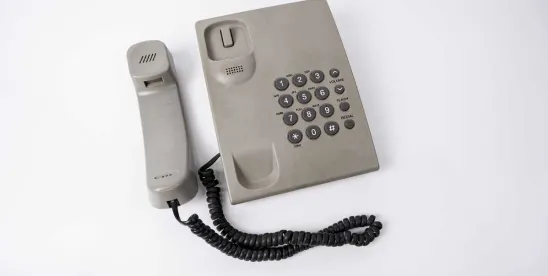As we noted earlier on TCPAWorld, the IMC odds against the FCC might be better than initially thought due to the panel of judges from the Eleventh Circuit hearing the oral arguments. Oral argument recordings are available online.
And the panel did not disappoint in pushing back on the FCC.
The conversation hinged on the FCC’s power to implement regulations in furtherance of the TCPA’s statutory language. This is important because the FCC is limited to implementation, and they are do not have the authority “to rewrite the statute” as was mentioned in the oral arguments.
Judge Luck (HERE) had some concerns with the FCC’s limitations on the consumer’s ability to consent. The statute, according to Luck, intends to allow consumers to agree to receive calls. If that is the case, then a limitation of the consumer’s ability to exercise their rights is an attempt to rewrite the statute.
Luck agreed that implementing the statute is fine, but limiting the right of consumers to receive calls they consent to receive is over reach. Luck continued “Just because you [the FCC] are ineffective at enforcing the authority doesn’t mean you have the right to limit one’s right, a statutory right, or rewrite those rights to limit what it means.”
The FCC attempted to argue that implementation of statute by their very nature is going to lead to restriction, but Judge Luck pushed back on that. According to Luck, there are ways to implement statutes that don’t restrict a consumer’s statutory rights. This exchange was also telling:
LUCK: Without the regulation do you agree with me that the statute would allow it?
FCC: Yes.
LUCK: If so, then it’s not an implementation. It’s a restriction.
Luck was not the only Judge who pushed back on the FCC. Judge Branch (I believe because she was not identified) also strongly pushed back on the FCC’s restriction on topically and logically associated as an element of consent. Branch stated that the FCC was looking at consumer behavior and essentially stated too many consumers didn’t know what they were doing in giving consent. The FCC stated “I think we have to look at how the industry was operating…” only to be interrupted by Branch who questioned that statement by asking “Don’t you have to look at what the statute says?”
YIKES.
Finally, the FCC’s turn in oral argument ended with this exchange:
JUDGE: Perhaps the question should be “We have a problem here. We should talk to Congress about it.”
FCC: Congress did task the agency to implement here.
JUDGE: It’s given you power to implement, not carte blanche.
DOUBLE YIKES.
There was also a conversation around whether or not the panel should issue a stay in this case. The IMC argued that yes – a stay was appropriate due to the uncertainty in the market.
It’s pretty clear that the judges questioned the statutory authority of the FCC to implement the 1:1 consent and the topically and logically related portions of the definition of prior express written consent.
While we don’t have a definitive answer yet on this issue, we do know this is going to be a lot more interesting than everyone thought before the oral arguments.
We will keep you up to date on this and we will have more information soon.




 />i
/>i
